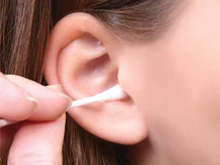

Be sure to insert them gently so as not to irritate your ears. If you have issues with excess water getting into your ears, wear a shower cap on days when you are not washing your hair.If you swim a lot be sure that you use swimmers ear solution to rid the ears of excess water.Be selective when choosing ear jewelry and avoid jewelry made of metal that might cause an allergic reaction that leads to itching.Here are a number of ways to keep your ears from itching without causing harm. There are a number of products that are marketed to keep ears clean but should never be placed in your ears including cotton balls and cotton swabs. Start by paying attention to what you eat and how particular foods make your ears feel.Įars are considered to be largely self-cleaning – and is important to leave the cleaning to your body as much as you can. If you find that your ears itch when you eat certain fruits, veggies or tree nuts, you may want to be tested for food sensitivities. You might feel a sort of prickly feeling in your ears when you swallow food or take it out of your mouth. Food allergies – Yes, what you eat can actually make your ears itch.If this does not stop the itching, you may need to see your physician for some steroid cream. try discontinuing use to see if that helps. If your ears become itchy after switching hair products or earbuds etc. You may also be sensitive to earbuds and hearing aids, and this can cause dermatitis, a condition that causes itchy skin. You can also become allergic to things put in your ears like rings, bars, studs, etc.

Sometimes hairspray or shampoo is the culprit here – be sure that you are using organic products that will not irritate.
#Inner ear itch wheat allergy skin
Skin allergies – Just like allergies can make your arms and legs itch, they can also make your ears itch.If you suspect that you have an ear infection, it is imperative that you see your physician who can prescribe the appropriate antibiotic. Too much moisture strips aways the ear canal’s natural protective layer against germs. Many people experience swimmers ear, which happens when water stays in the ear after swimming.


Both bacteria and viruses can cause infection and it usually happens when you are already sick with a cold or flu.


 0 kommentar(er)
0 kommentar(er)
